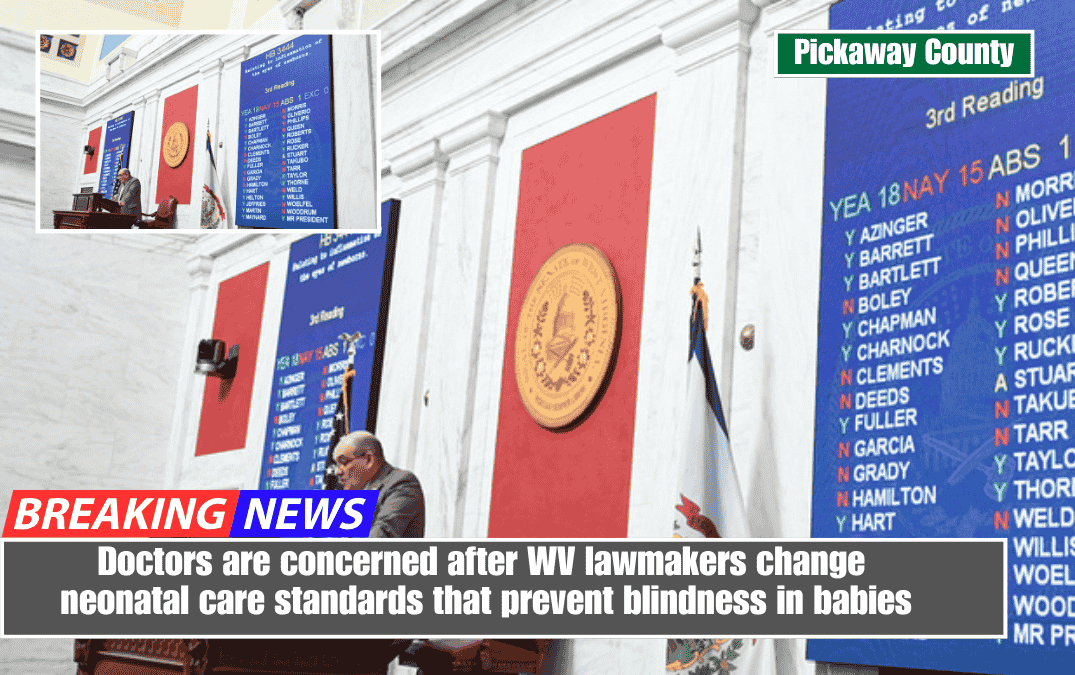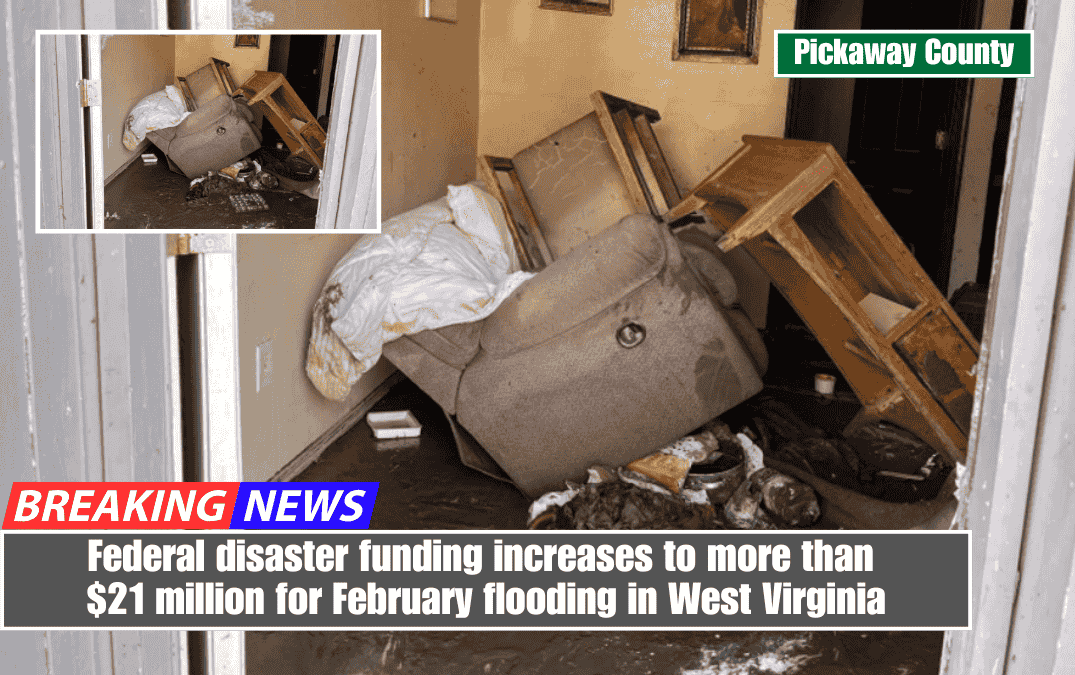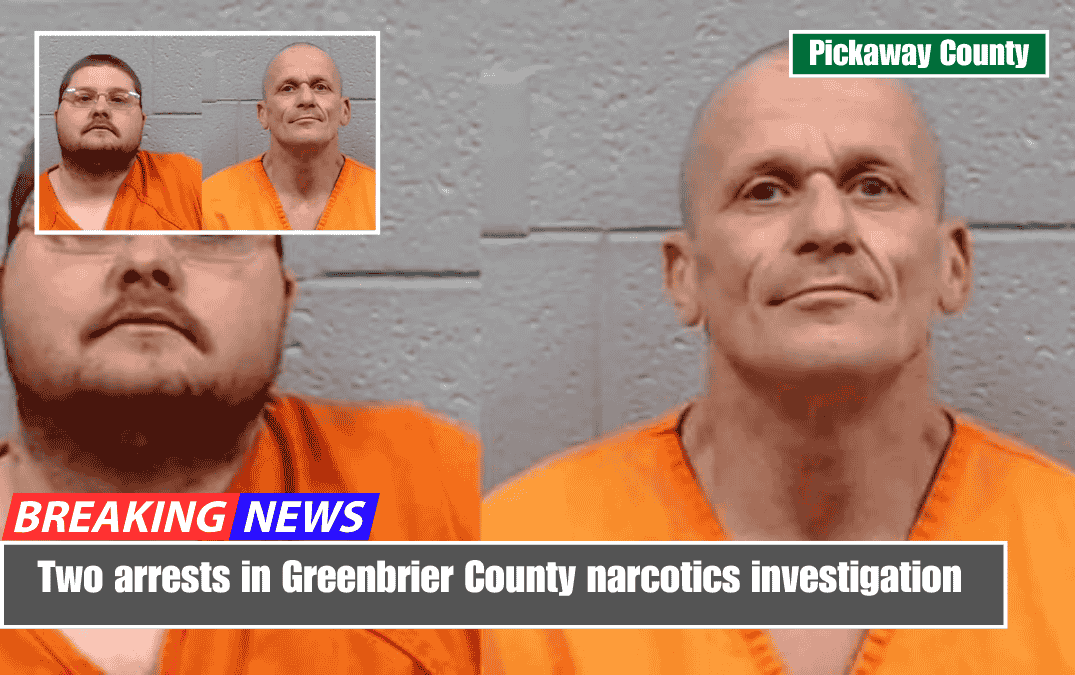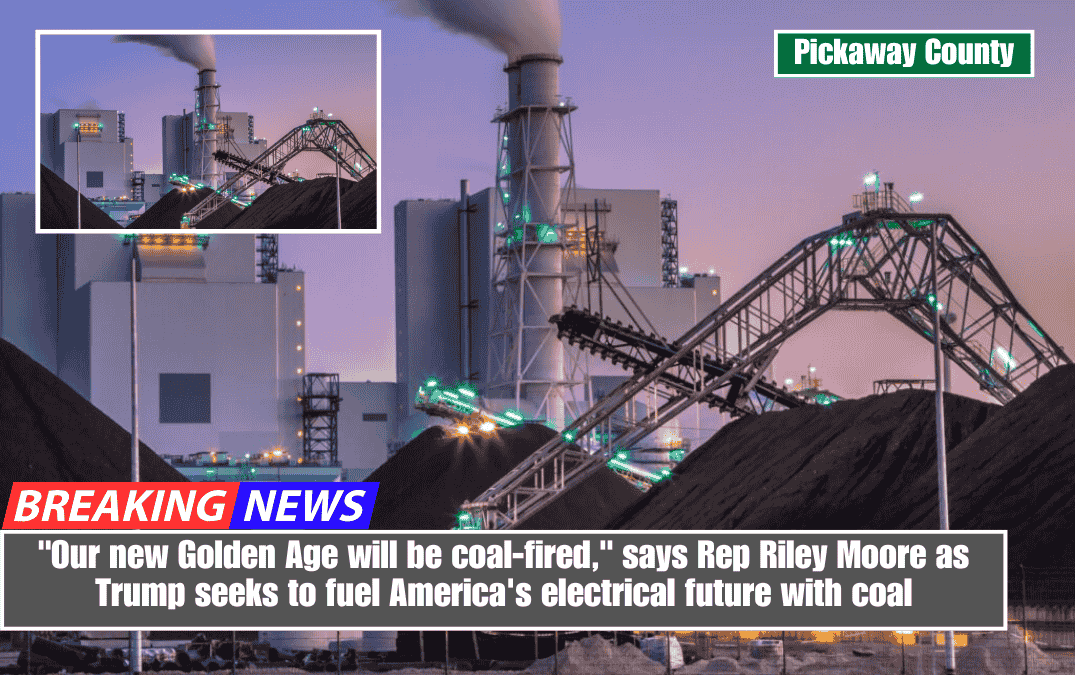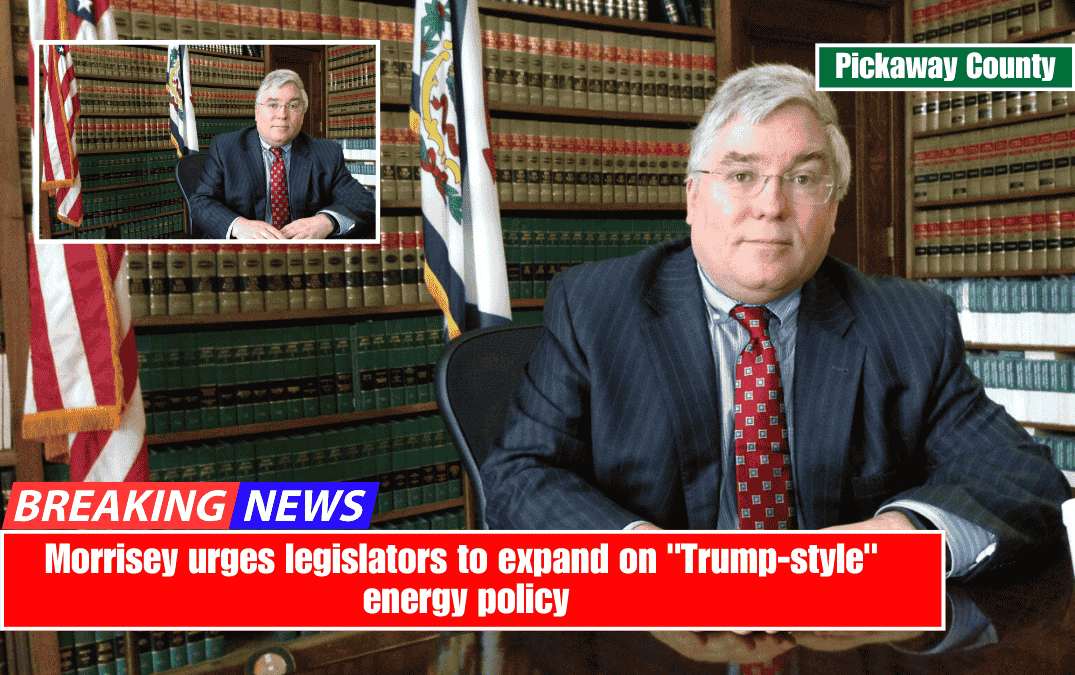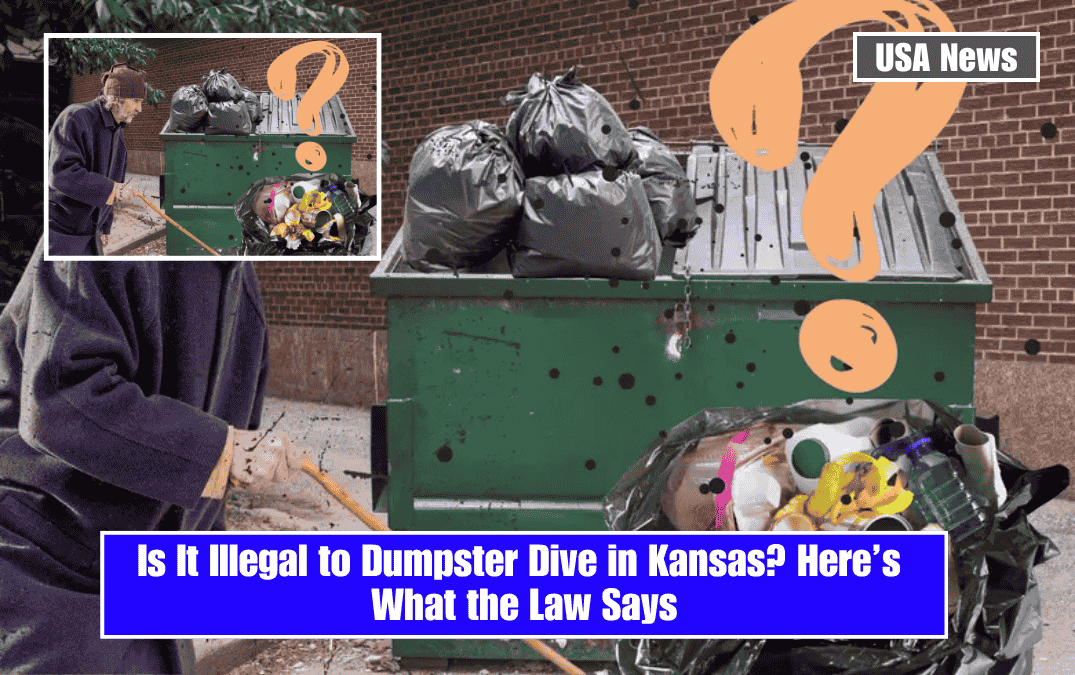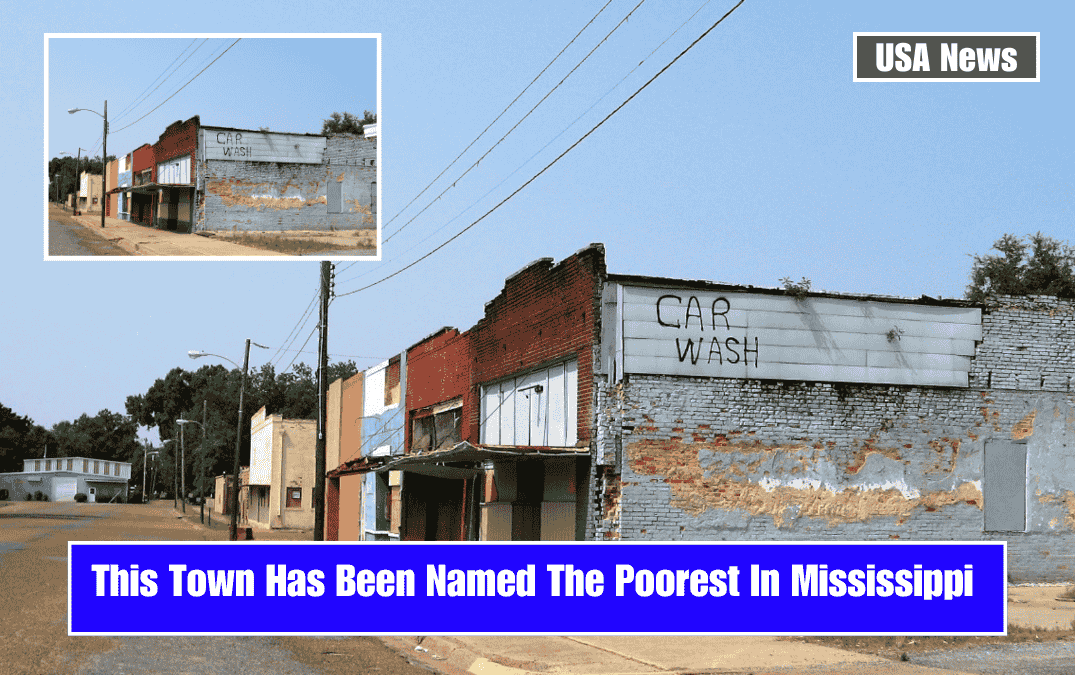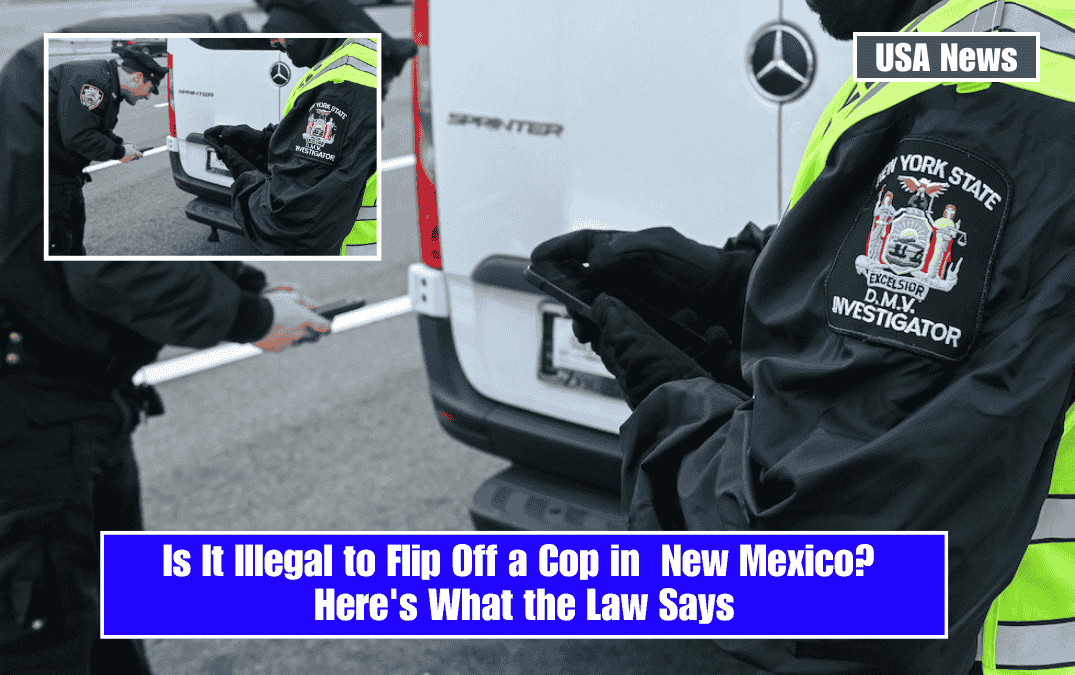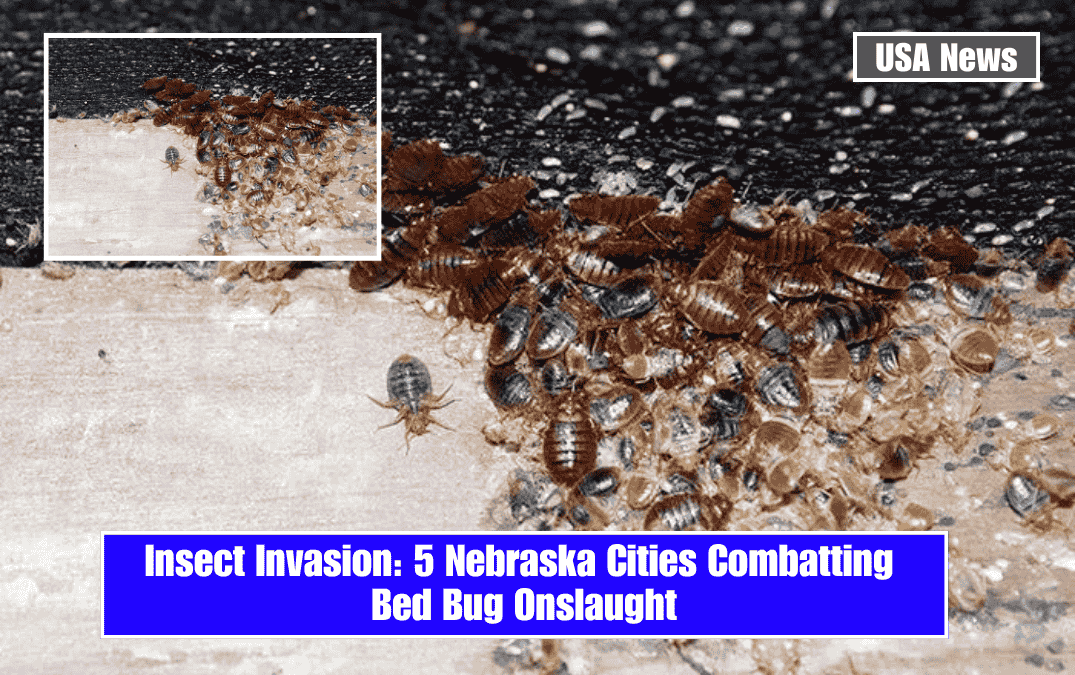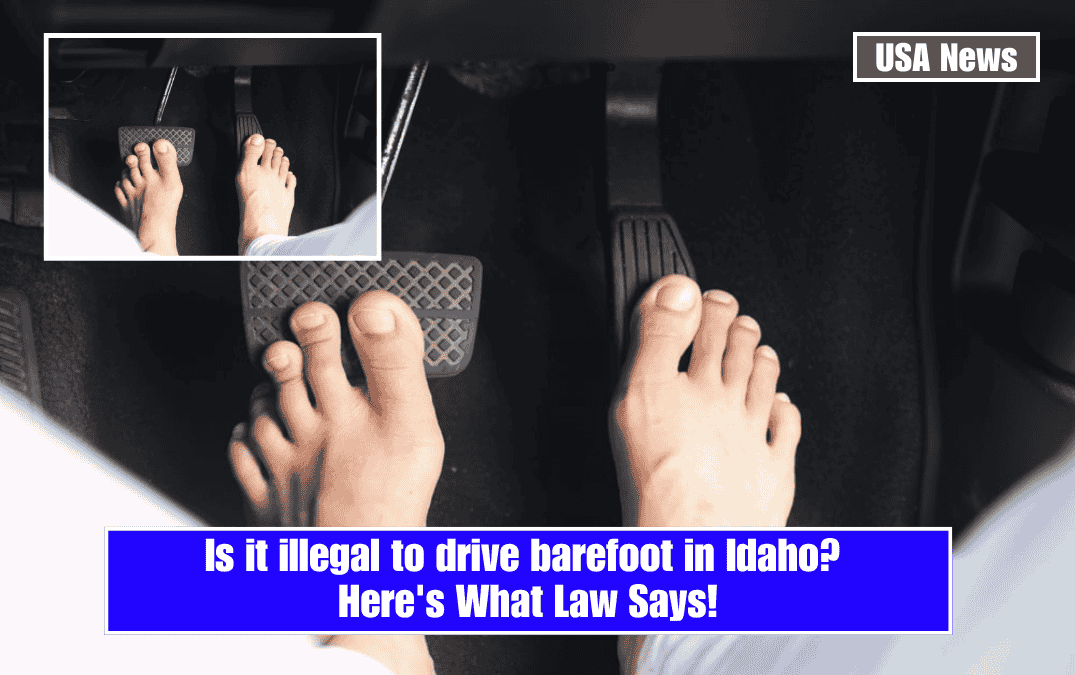Rain began in the southern part of the state early Saturday, February 15, 2025, resulting in multiple instances of flash flooding and high water levels in many areas. On Sunday, February 16, 2025, an ambulance was seen stuck in flood water in Welch, West Virginia. (Felicia Jenkins, courtesy photo)
A picture is worth a thousand words. That same image, after inches of rain and snow have resulted in feet of floodwaters, costs millions of dollars and takes lives. Within that image is damage to people and property that cannot be fully described in words or quantified in dollars. Nothing punctuates carefully crafted political rhetoric like viral images of unexpected suffering.
The images and video from recent flooding in Welch, Williamson, Panther, and other areas of West Virginia’s coalfields serve as a reminder of the power of water. Once the water has receded, the cleanup process begins. Deaths are mourned, property damage is assessed, roads need to be cleared and repaired, and the population seeks assistance from both neighbours and the government.
Water is an amazing resource. Water is essential to life as we know it, accounting for the majority of a human’s body weight and covering the majority of the planet we inhabit. Water has always played an important role in the economy and politics. War and the nations that fight it spill blood over water, which serves as both a resource and a border. Writers and artists have long used water as a metaphor for life and adaptation. Theologians use water to explain everything from allusions to purification to a metaphor for death. Simon and Garfunkel sing about a bridge over troubled water, and Bruce Lee demanded to “be like water,” which sounds absurd unless you are a martial arts master.
According to science, water in its natural state is odourless, colourless, transparent, and inorganic as a compound. Unless you’re in the coalfields of West Virginia. People with a suspect well would prefer to have odourless, colourless, and tasteless water instead of the red sulphur and rotten eggs odour of a bad water source. Even so, it pales in comparison to a flood-related assault on the human olfactory system. What remains after the flood, as places like Welch, Panther, Williamson, and others know all too well, is a mess of mud, debris, and even less savoury things that is difficult to clean up and has a lingering odour.
A picture or a video clip cannot be smelt, which is fortunate for the viewing audience. Words can attempt to explain, but they fall short of the harrowing experience of destruction followed by sludge and debris that must be cleaned up before any rebuilding can begin. Social media has transformed news media, allowing almost anyone anywhere to see what is going on in near-real time, even in the most remote areas of McDowell County.
Exceptional reporters like WV Metronews Jeff Jenkins can describe in heartbreaking detail the screams of victims and the despair of rescuers powerless to stop nature at its worst. West Virginians, who are all too familiar with hard times, are subjected to powerful words and images.
Powerful words that should stand in stark contrast to the recent use of words in politics and the media, which range from flippant to malicious. It is simple enough to sit at a keyboard and complain about federal spending and employees. Nonetheless, the flood wall in Williamson, built by the former and maintained by the latter, remained intact.
It’s simple enough to send a social media post demanding that we get rid of FEMA because of the agency’s limitations and failures in disasters, including in West Virginia and across Appalachia more broadly. But, until something better comes along, the victims of today require federal assistance right away. Gov. Patrick Morrisey is rightfully seeking assistance, which he calls “required.”
News stories at the state and national levels are full of debates about words, their meanings, their usage, what words should disqualify you from the discourse, and what words should be mandated on which walls. Words can have a variety of meanings and uses. Too often, online reactions to the day’s news do not fully reflect the reality of real-life people.
Politicians and media schemers thrive on manipulating words and their reactions. Words to them are worth untold dollars in profit if the reaction generates clicks, views, and reads, regardless of their inherent value. Words, for elected leaders, are tools for winning elections, swaying electorates, gaining and maintaining power for good, bad, or indifferent reasons.
Meanwhile, along the Tug Fork, words like community, family, friends, rescuers, help, service, and love have more meaning today than they did on Monday. Not because an algorithm or search engine optimised online platform created them, but because when the water came to destroy, those real-life building blocks got them through. Like previous floods, the news media’s attention will fade, and photos of the cleanup and rebuilding will not go as viral as videos of the destruction. The communities, the families, will clean up, repair, rebuild, and move on, keeping one eye on the river for the next time the water rises.
There is no way to mass baptise the media and the general public as a public declaration of repentance and change, but the recent floodwaters should give us pause and remind us that change is required. While the eternal national debate over what our government should/could/ought to be continues, these events should serve as a reminder that it is the actual government that will respond in a crisis. Adjust the rhetoric and broad-brush statements accordingly. Use words that will not be forgotten as silly, self-serving politics when real trouble strikes. Words that stand out and provide strength during difficult times.
Words that mean something different during a crisis—or worse, mean nothing after a tragedy—should be avoided between now and the next crisis. Consider a state and federal government by and for the people, which we, the people, ensured was ready to go when we needed it most. Such an outcome is only possible with an electorate interested in accountable government, not simply mastery of buzzwords that tickle ears, trend online, and entertain the masses. Imagine the true value of a people and their government working together, steadfast and unwavering, even when the water is knee deep and rising.




